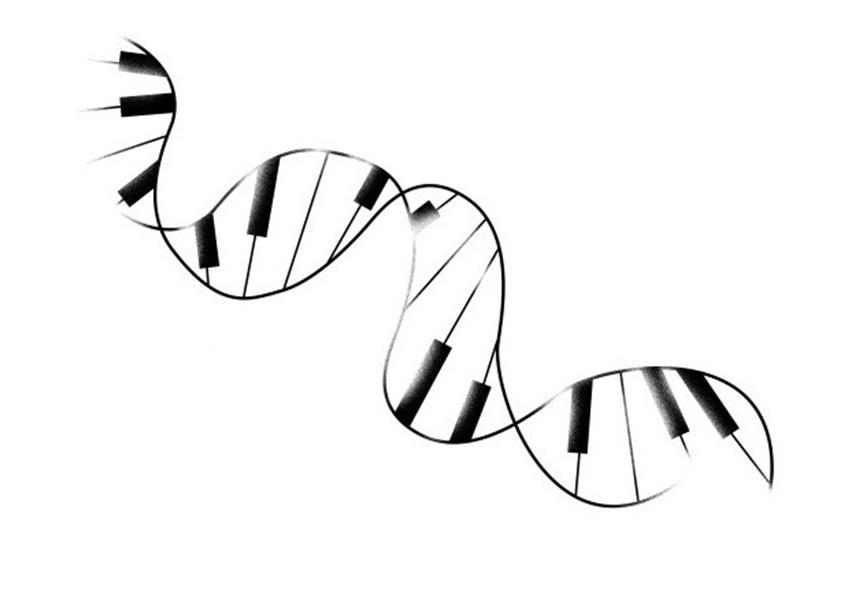Everyday scientists learn more about the regulation of gene expression (gene activity). Your genome is like a huge piano keyboard that contains more than 20,000 keys; each gene in your genome is like a key in this huge keyboard. Science is proving that what you experience throughout your life changes the way your genes operate. Your genes and your lifestyle form a feedback loop, and what you do to your genes makes a big difference.
Your lifestyle changes the expression of your genes through epigenetic marks or epigenes; these marks change gene expression without changing the DNA sequence itself. Several mechanisms are employed in epigenetic marking, including DNA methylation of CpG islands, post-translational modifications of histones, and non-coding RNA (ncRNA). In fact, the epigenetic programming is different in every cell type in the human body; different genes are expressed in different cell types.
The term epigenome indicates all those epigenetic marks that are added onto our genes to control the expression of our genes. The epigenome is nearly indistinguishable at birth in identical twins, but it diverges as they age. This explains why one twin may be more susceptible to a certain disease than the other although DNA sequences are the same in identical twins.
Like piano keys that produce inimitable sounds in response to external stimuli (fingering), genes produce inimitable expressions in response to their intricate genetic programming, and also in response to the different external stimuli that exist in life. Genes are switched on and off through some epigenetic marks that are largely dependent on life experiences; that is, on what happened to the genes throughout life. The epigenetic marks are allowing those lifestyle choices that we make to be traced to the genome, and are the equivalent of the fingering scheme for a piano keyboard.
Epigenetic modifiers are diverse, including diet, smoking, alcohol consumption, exercise, emotions, and even prayers. A recent study on rats showed that a diet rich in fructose disrupted the epigenetic control of more than 200 genes that are normally expressed in the hippocampus. The hippocampus regulates the processes of learning and memory, and therefore, fructose-rich diet impaired memory in rats. Fortunately, the harmful effect of fructose on brain genes could be reversed by a diet rich in Omega-3 fatty acid.

Emotions also act as epigenetic modifiers and can mark brain genes that are involved in stress responses. In experiments with rats, researchers found that rats raised by attentive mothers were able to deal with stressful situations better than rats raised by negligent mothers. The epigenetic marks of the genes normally expressed in the brain were different between the two rat groups. In humans, the stress-dampening genes are epigenetically turned-off in the brains of adults who suffered from unhappy childhood experiences. Emotional disturbances as panic, Post-Traumatic Stress Disorder (PTSD), and schizophrenia can alter gene expression in the brain through epigenetic marks that are grossly different from those marks found in normal happy individuals.
Inappropriate epigenetic marks could be responsible for a new class of diseases; epigenetic diseases. In human atherosclerosis, certain genes are turned off by hypermethylation—epigenetic marks—and gene expression is epigenetically shifted in endothelial cells from atheroprotective to pro-atherogenic status. Epigenetic diseases include also Type II Diabetes and obesity.
The gene encoding leptin—a hormone that inhibits hunger and regulates body weight—is also under epigenetic control. Many tumor suppressor genes are silenced by epigenetic marks that methylate the CpG islands in the promoters of these genes. Epigenetic therapy will be available in the near future to target those silenced tumor suppressor genes. This approach could weaken the cancer cell to the extent that it will be killed by lower doses of chemotherapeutic agents.
Not only does your lifestyle determine the activities of your genes, it also changes the activities of the genes of your descendants. For example, the age at which a boy begins smoking cigarettes is positively related to his future son’s Body Mass Index (BMI). In another study, babies of mothers who were exposed to the World Trade Center (WTC) attacks during pregnancy, showed symptoms of PTSD early in life. These trans-generational effects are possible because some epigenetic marks can be transmitted across generations. Future fathers and mothers should, therefore, protect their epigenomes for the sake of their children and their grandchildren.